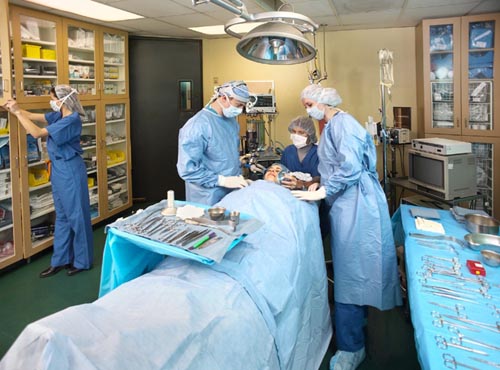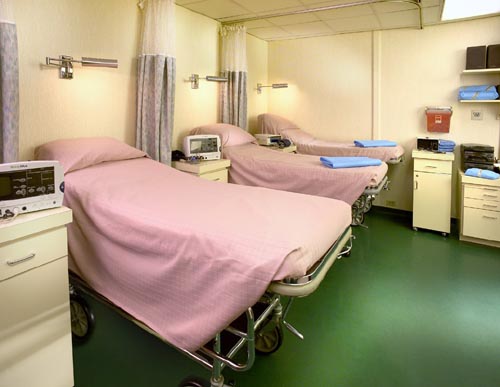Dr. Stephen Bresnick: Plastic Surgeon in Encino, California
/
Dr. Bresnick discusses how he balances his teaching career and private practice after 15 years as a plastic surgeon.
Name: Stephen Bresnick, M.D., D.D.S., M.S.
Clinic: Encino Plastic Surgery
Location: Encino, CA
Website: drbresnick.com
That's interesting: Dr. Bresnick has published nine books in medicine and science and has authored over 20 articles published in medical journals.
Dr. Bresnick has trained a lot of young plastic surgeons as a chief resident in plastic surgery at Stanford and assistant professor of surgery and clinical instructor at USC. We asked Dr. Bresnick about his thoughts on medical education in the US and his surgical practice.
You've spent a lot of time teaching. What have you learned about the differences between training physicians and running a practice on your own? Where do you think that US based medical educations are strongest and weakest in preparing young doctors?
Running a high-quality private practice is demanding and requires full attention to our patients. This gives us the opportunity to control the quality of the experience, offer excellent results, and form a bond with our patients. Working in a teaching hospital requires different skills. There is more delegation and supervision, and less ability to control a patient’s experience. The cases seen in an academic center are also more complex.
I believe that the US medical education system should focus on humanism, ethics, and continued education. Some of these things are done well, others not so well. Procedures are taught well as is the science of medicine. When I interact with some of my surgical colleagues, I wonder if the art of medicine and the humanistic components were taught well.

How are your clinic's staffing and operations organized? What problems or issues have you had with staffing your clinic and how have you resolved them?
Our plastic surgical practice has evolved to employ over 15 staff members. Each person has an expertise in their position. We have our front office staff and our operating room staff. There is very little overlap in job duties because of the different skill sets required. We have two plastic surgery nurses, patient care coordinators who guide patients through the experience in our office, insurance specialists, and other important people. We have had very few problems with staffing our practice because we select people very carefully for positions and offer appropriate training and guidance.
You're using Sciton Erbium laser, Lumenis Lightsheer and KTP laser. Can you tell us how you evaluated it and why you made the decision to go with these technologies?
We select technologies which have proven benefit for patients. There is a new laser available on the market every few months or so, but many offer disappointing results and overstated claims. We honestly tell our patients what to expect in terms of healing and results, and this has been appreciated. When we look at a new technology, we ask ourselves if our patients will be happy with the results. If we are not sure, we don’t consider it any further. If we believe that the results are very good, we are more likely to investigate further or commit to a purchase of the technology.
We are closely evaluating non-invasive radiofrequency devices and ultrasound technology for skin tightening and fat dissolution.

Do you see a time when cosmetic surgery is going to be replaced at least in part by nonsurgical technologies? Is this an opportunity or threat for surgeons?
I believe that surgery will offer more dramatic and effective results than non-invasive technologies for many years to come. Although some of the minor procedures I do will be affected by non-invasive techniques, the “bread and butter” of our specialty will remain quite stable. We encourage new technological developments and incorporate those into our practice to offer the most effective treatments.
How do you run your business in order to keep up with your competitors?
Our competitors are both plastic surgeons and non-surgeons who do cosmetic procedures. What keeps our practice busy is our commitment to excellence, top training and credentials, and a really good patient experience. These things make word of mouth by far our most effective marketing.
What is the best advice you've ever received as an entrepreneur and physician?
Treat your patients like family members and provide service which exceeds expectations. With this philosophy, some patience, and consistently good results, your practice will grow and thrive!

About: Dr. Bresnick is board certified by the American Board of Plastic Surgery and is committed to excellence in both surgical results and patient care. A native of Los Angeles, Dr. Bresnick completed his undergraduate work at UCLA, followed by both a Master’s degree and a Doctoral degree at UCLA. Dr. Bresnick earned his M.D. at the University of California, San Diego (UCSD).
Following graduation from medical school, Dr. Bresnick completed his surgery internship and surgery residency at Stanford University, followed by a three-year plastic surgery residency at Stanford. Dr. Bresnick was named Chief Resident in Plastic Surgery at Stanford in 1996. After becoming a fully trained plastic surgeon, Dr. Bresnick completed a Craniofacial Plastic Surgery fellowship at USC and Childrens Hospital Los Angeles. He was named Clinical Instructor in Plastic Surgery from 1996-1997.
Dr. Bresnick was appointed Assistant Professor of Surgery in the Division of Plastic Surgery at USC in 1997, and remained on the full-time faculty for five years. During this time, Dr. Bresnick taught plastic surgery and lectured extensively, both nationally and internationally. Dr. Bresnick has won many awards and is recognized as an expert in plastic surgery. He has published nine books in medicine and science and has authored over 20 articles published in medical journals.
This interview is part of a series of interviews of physicians running medical spas, laser clinics and cosmetic surgery centers. If you'd like to be interviewed, just contact us.





